-
•
•
The Society for Mormon Philosophy and Theology will hold its 2016 Annual Meeting on October 13-15th at BYU, with the theme, “Christ, Our Forerunner.” Below is the text of the call for papers (adjusted for blog format), or click here for a printable PDF version. The Society for Mormon Philosophy and Theology invites paper proposals on any aspect of Mormon belief, including its philosophical ramifications. We particularly encourage submissions on this year’s theme. Jesus Christ stands at the center of Mormon belief, understood through many roles, as co-creator of the earth, as the Jehovah of the Old Testament and the… Read More
-
•
•
66 responses
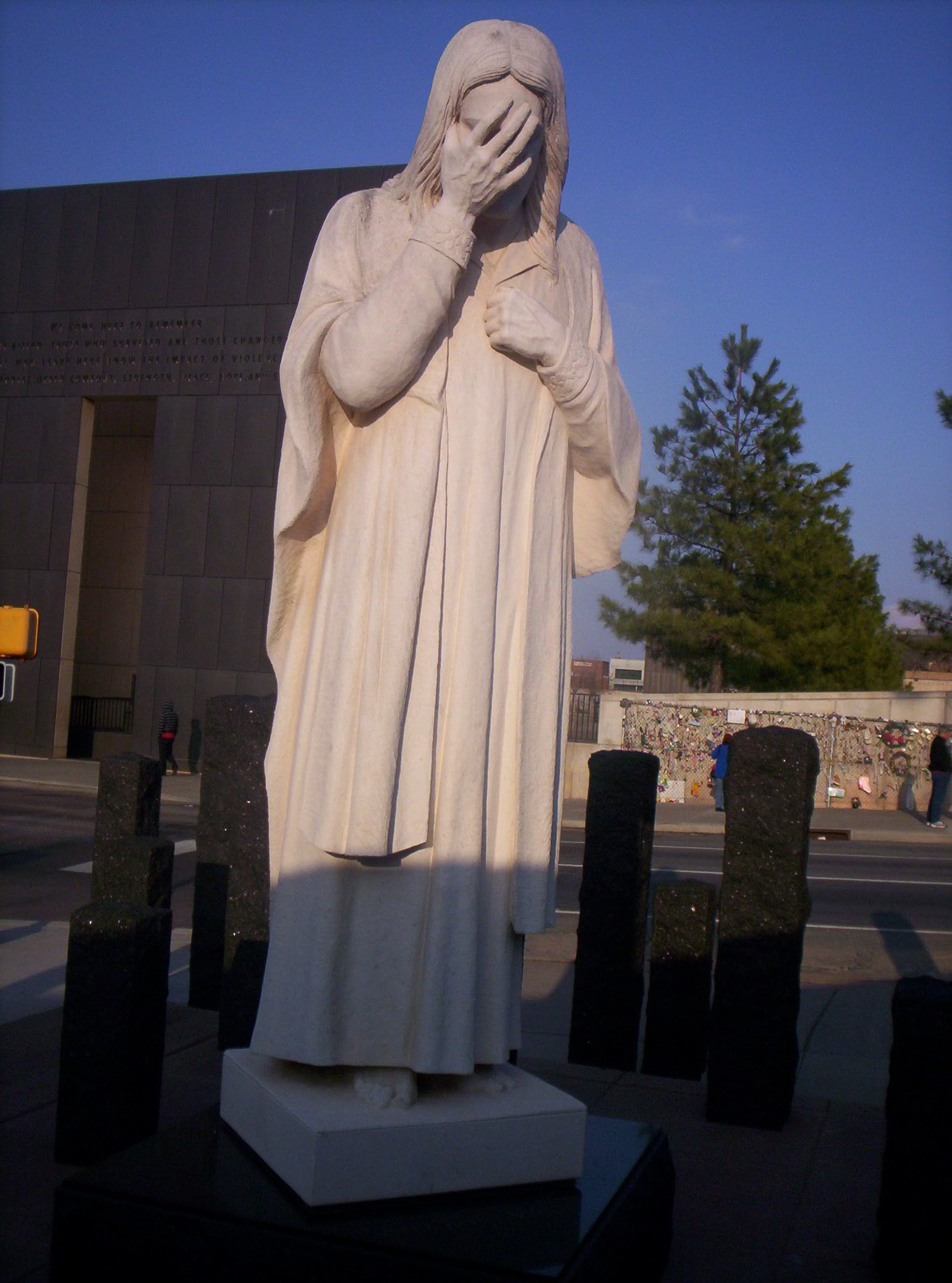
Jacob Baker began a long, public Facebook post this way: I’m willing to bet that there are many people out there right now feeling conflicted about the mass murder that happened yesterday. I’m not talking about the outspoken blatant homophobes and bigots, but essentially good people who find themselves somewhat confused by this tragic event. He went on to allege that such people have less empathy for the victims of the horrific mass shooting in Orlando because of a “feeling of disapproval or discomfort” that is “cultivated within your religion.” Thus, such people feel “both compassion and disgust.” An early… Read More
-
•
•
47 responses
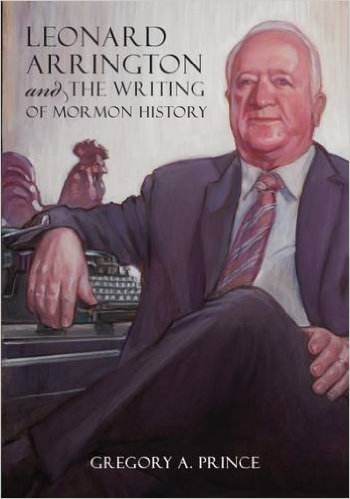
This is not a book review. This is my personal reaction to the book. And, in short, it depressed me. (This doesn’t mean I didn’t love the book and wasn’t fascinated by it; I did and I was. You should definitely read it.) Read More
-
•
•
4 responses

“A Preparatory Redemption: Reading Alma 13” The Third Annual Summer Seminar on Mormon Theology Conference is free and open to the public Wednesday, June 15, 9am-5pm The Chapel of the Great Commission The Graduate Theological Union 1798 Scenic Avenue Berkeley, CA 94709 Sponsored by the Mormon Theology Seminar in partnership with The Laura F. Willes Center for Book of Mormon Studies The Neal A. Maxwell Institute for Religious Scholarship and the Wheatley Institution Hosted by the Graduate Theological Union Speakers include: Kristeen Black Matthew Bowman Rosemary Demos David Gore Bridget Jeffries Adam Miller Bob Rees Joseph Spencer Sheila Taylor Read More
-
•
•
98 responses

Despite the fact that the term rape culture–and the increasing attention devoted to it–are recent developments, that does not mean that the stories of the life of Jesus have nothing to say about the topic. In fact, there is quite a bit of material in the gospels which is relevant to the current discussion. Read More
-
•
•
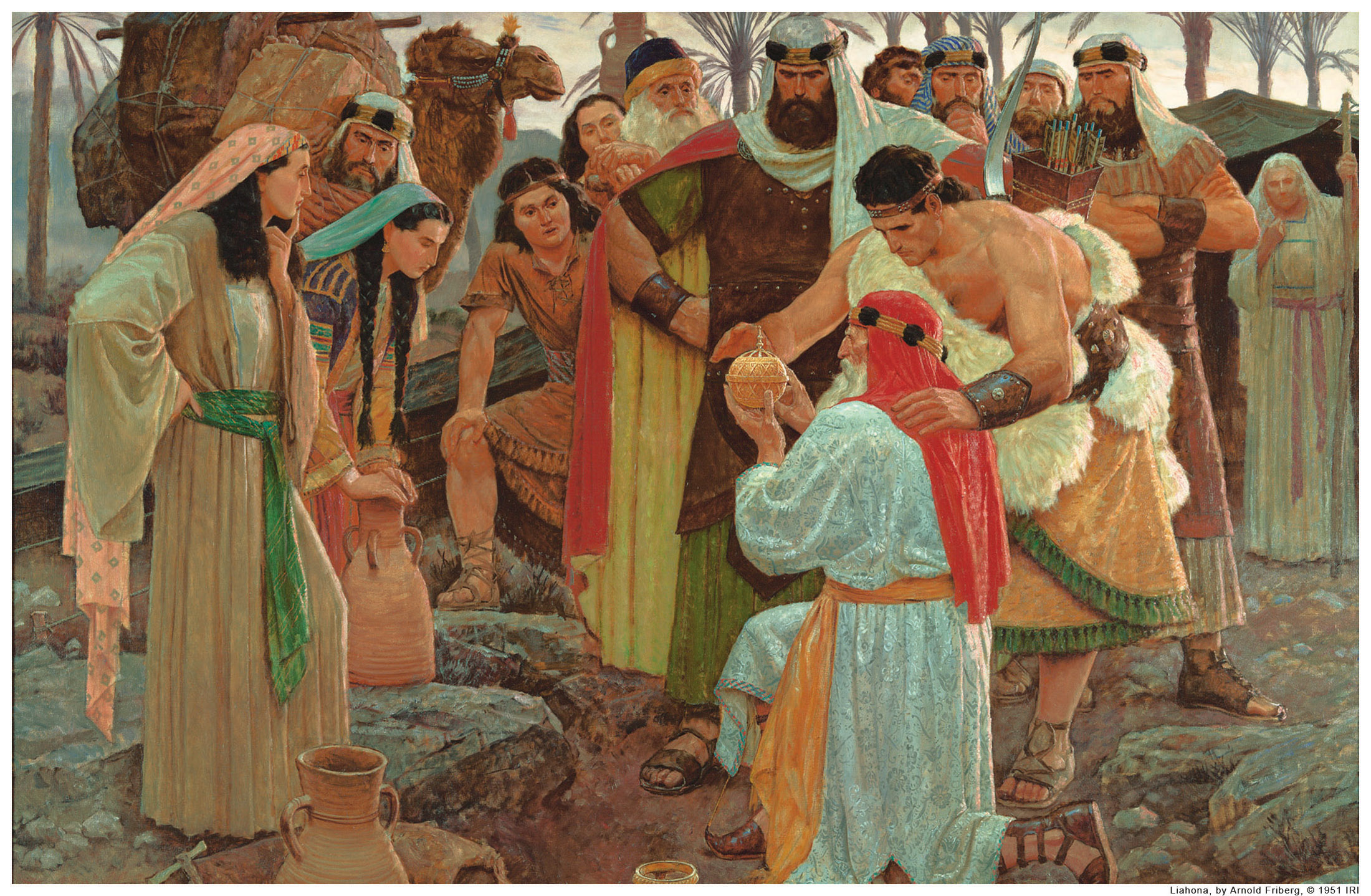
The angel begins by reminding or interrogating or raising the covenants of the House of Israel. I’m not sure the angel’s intent. Is this pedagogical priming? Is it interrogation? Is it a test, with the angel serving as guardian or gate-keeper, not allowing Nephi to pass on to the next part of the vision until he’s proven his gnosis? Is it the divine teaching that incorporates Socrates’s great insight that knowledge begins with acknowledgment of ignorance? Read More
-
•
•
11 responses
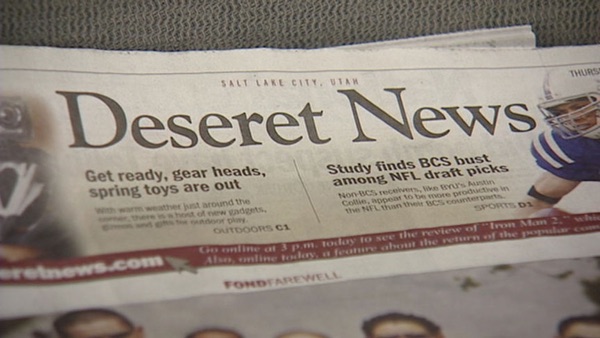
It’s no secret that in the ever increasingly unstable newspaper market that the Deseret New has been trying to increase it’s market beyond both Utah and even the Mormon audience. It’s always been a bit odd being a metro paper in competition with the Salt Lake Tribune in a tiny market but also publishing the Church News. I remember as a kid my parents having a subscription to the Church News in way off Halifax, Nova Scotia. With the loss of classified dollars and the shift to the internet with low ad rates, all newspapers have been struggling. In a… Read More
-
•
•
4 responses

We return now to the grand parallel Nephi makes in the articulation of his vision—Lehite afflictedness and Gentile blindness. While this passage focuses on the binary possibilities for the fate of the Gentiles, in the context of the parallel there’s a critical message for the Lehites as well—if the Gentiles can assuredly repent, then the remnant of Lehi can assuredly be restored. Overall, it’s a passage concerning the universal possibility of reconciliation and union under the covenant. Read More
-
•
•
10 responses

As is well known, the prophet Nephi was so beloved of the Lord that he was given power to command all things. If he called for famine, there would be famine. If he commanded Mount Nebo to be moved, it would be moved from its place. And in fact, one morning Nephi walked out of his house, looked at Mount Nebo, and commanded it to be moved thirty miles to the north. The mountain rose into the air, drifted north, and set itself down again in the place it stands today. Read More
-
•
•
One response

Theses passages are tremendously challenging. On the one hand they insist on the historical nature of their prophecies—an understanding of history and of God’s movement in history is their whole raison d’etre. But even retrospectively it’s difficult to get much traction, to pin down events or movements or historical happenings, or to see these passages as illuminating particular events. Read More
-
•
•
One response

Verses 30-33 give the logic of this vision. There’s a grand parallel going on between the dramatically afflicted and nearly destroyed remnant of the Lehites and the “awful blindness” of the Gentiles. God’s ultimate covenant with Israel is rich enough to offer provisions to both in their different but analogously wretched lots. While I find this passage tremendously uplifting and profound, I also can’t simply run away from the stone of stumbling that is this language of God smiting whole peoples and generations. My Mormonism keeps me from being fully modern in many ways, and as communitarian as I believe… Read More
-
•
•
5 responses

After successfully subverting the lands and economies of the natives and then violently refusing to remain party to their political contracts with their countries of origin, Nephi now sees the new immigrant population prospering. What does it mean that they prospered? I immediately think of things like infant mortality and economic growth. What would Nephi have meant by this? Is it a foil to their being in captivity? Does it refer to the fact that they geographically spread? Is it their continued subjugations of and thefts from among the native populations? What were Nephi’s family’s own experiences in the New… Read More
-
•
•
2 responses

I wonder what we’re getting here in this passage. How much of this is straightforwardly the details of the vision? In particular, is Nephi’s understanding of the vision a part of the vision, in the same way that one comes into a dream already comprehending the background and meaning of the events that one dreams? Or is the interpretation all Nephi? Was he even capable of making the distinction? How much of this is the evolved interpretation of a man who has pondered for decades on the vision’s meaning? Then again, how much of this is from the mind of… Read More
-
•
•
11 responses
First let me say upfront that I simply don’t read that many apologetic papers anymore. That’s less about any problems with the genre so much as just a lack of time. I have to be a little pickier about what I read than I used to. One day when little kids aren’t waking up all hours of the night that may change. Second let me say I’m not really interested in doing apologetics in the below. I’ll do my best to refrain from answering tangents that head in that direction. Rather, what I’m more interested in is the theoretic scaffolding… Read More
-
•
•
One response

A consistent feature that distinguishes the Book of Mormon from the Bible is its pan-human focus. Nephi does not strike me as very cosmopolitan—rather the opposite. He cares about his family and posterity, and his overriding focus even there is not love and loyalty but theology; he cares that they’re tied into God’s covenant with the House of Israel, that their history is sacred and thus legitimate. It’s easy to see Nephi as exactly the sort of overzealous man who devotes his time and attention to his calling at the expense of his personal family (which he never mentions outside… Read More
-
•
•
36 responses
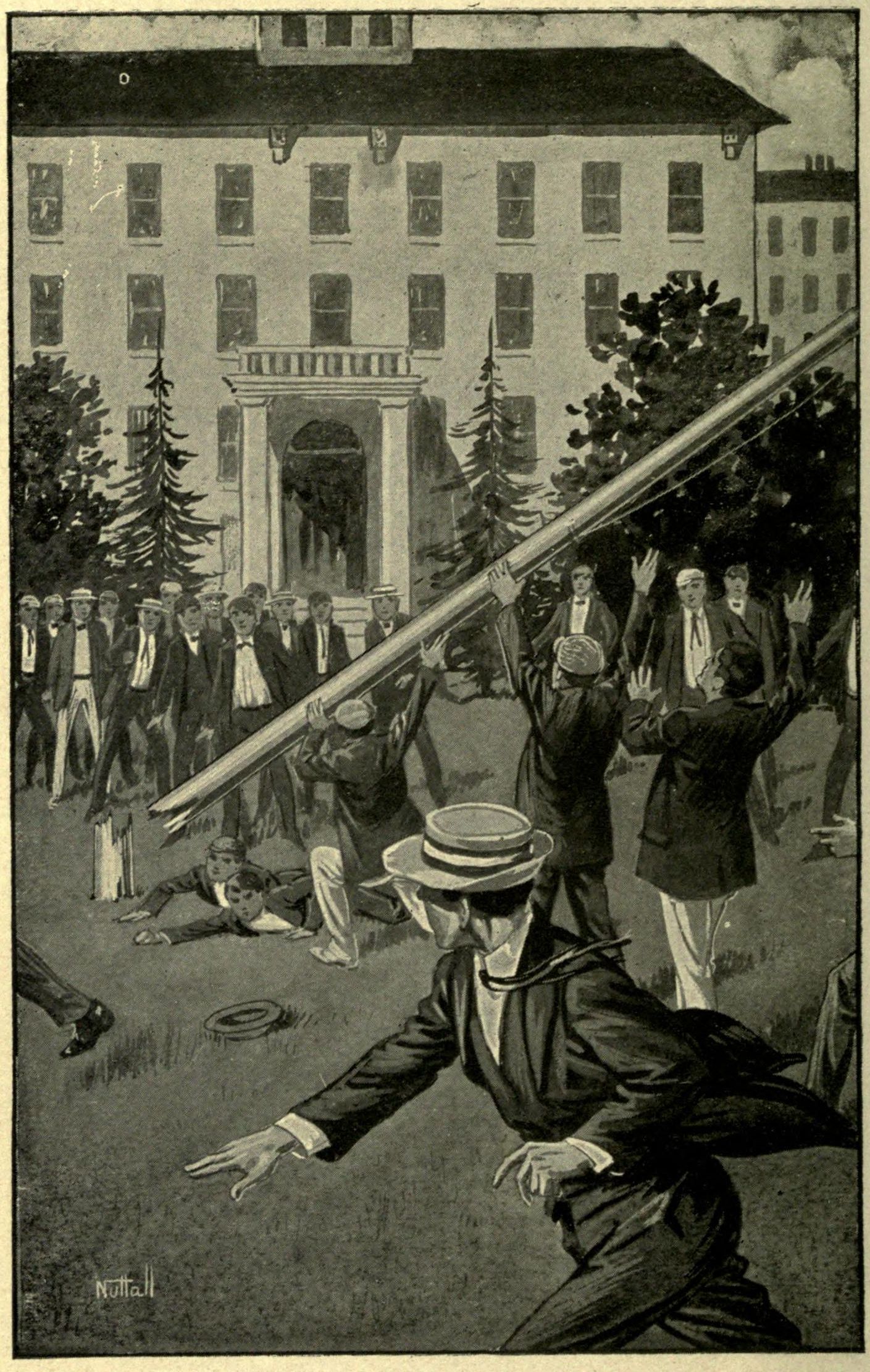
As you are probably well aware, BYU is reviewing its policies related to sexual assault victims and Honor Code violations. One proposal which seems to have a good bit of currency–especially since it appears to be the norm at other schools, including SVU, which have similar Honor Codes–is an “amnesty” for offenses which might have been committed in the context of the sexual assault. The motive here is to remove the disincentive for victims not to report assaults–or for assailants to assault Honor Code scofflaws because they are well aware that their victim is less likely to report the assault… Read More
-
•
•
2 responses

The pattern goes from “normal” chaotic, difficult, mortal life, to intense trial and darkness, to the burst of light when God comes and establishes an order that results in Zion, to apostasy from Zion leading to apocalyptical violence. Interestingly, however, the apocalypse isn’t the end here; rather it’s followed by more everyday, mortal struggle before the next chapter—which expands the scope of this drama from tribal to global. But this is the same pattern that Joseph Smith prophesies for our own dispensation: a prophet sets up a people who go through chaotic, difficult, mortal struggles, often assailed by our enemies… Read More
-
•
•
2 responses

And here it is, the climax of the whole story. God himself comes down from the heavens to visit his people. Note that this is how we always experience that singular (even if repeated) event: it’s in the future. We’re always waiting for the parousia and never ourselves experiencing it. Read More
-
•
•
19 responses
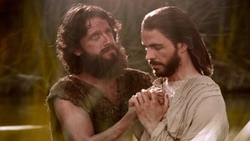
I’ve been enjoying James’ recent close readings of the Book of Mormon. His last post on 1 Nephi 11 got me really thinking about what the condescension of God is. Around the same time I read Ralph Hancock’s recent essay at First Things about common ground between Mormons and traditional Christians. The big divide between Mormons is usually taken to be our theology of the relationship between God and humans. “As man now is, God once was; As God now is, man may be,” to quote Lorenzo Snow’s famous couplet. Within that couplet we find some huge divides with traditional Christianity. First… Read More
-
•
•

Now Nephi looks and beholds the future of his posterity and people. And one can understand why he comes out of this vision depressed and feeling sorry for himself—and why he immediately lays into his brothers with a condemning despair. Read More
-
•
•
41 responses
During the lesson in Elders Quorum this past Sunday, we discussed ways to enhance our study of the scriptures. As usual, I raised my hand and recommended that we study the scriptures within their historical and cultural context so that our “likening” of them does not turn into “making stuff up.” I said that this should also include a study of Church history in order to understand our own doctrines, revelations, and controversies. And to top it all off, I suggested we work on developing religious literacy in order to have fruitful conversations with those outside our faith tradition. This class… Read More
-
•
•
3 responses
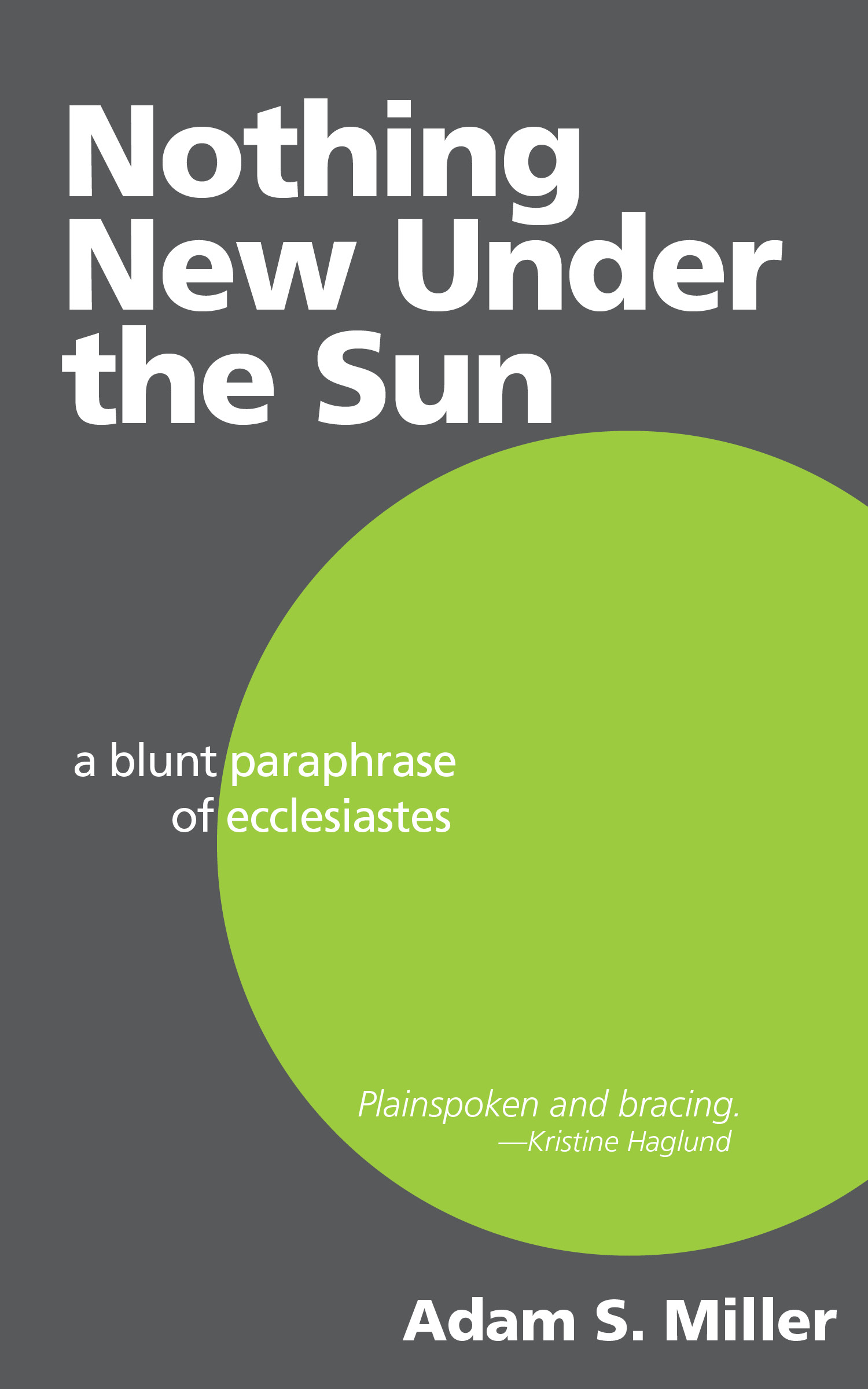
An excerpt from the first chapter of my recently released book, Nothing New Under the Sun: A Blunt Paraphrase of Ecclesiastes: Chapter One Privileged, loved, educated, wealthy, this is what I saw: emptiness, futility, vanity. Everything is ephemeral. Everything crumbles to dust in your hands. Everything passes away. There is no escape. What good does it do to work hard and get ahead? Whole generations are born, suffer, work themselves to exhaustion, and die with nothing to show for it—all while the world spins in place, unmoved by their coming or going. The sun rises, the sun sets, and then… Read More
-
•
•
44 responses
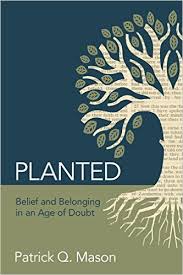
Patrick Q. Mason’s Planted: Belief and Belonging in an Age of Doubt (2015) is the latest entry in the New Mormon Apologetics field. From the credits page: “This book is the result of a joint publishing effort by the Neal A. Maxwell Institute for Religious Scholarship and Deseret Book Company.” That is a promising partnership. The broad and inclusive message of the book is badly needed by the general membership of the Church and by local leadership. Having the book on the shelves at Deseret Book (or hopefully on a display table up front) is the best way to get… Read More
-
•
•
11 responses

Behold the condescension of God. Earlier, the angel asked Nephi if he understands it, and Nephi admits that he does not. Now the angel tries to show him. But what is it that Nephi sees? First is the mere fact of the Redeemer going forth. I’ve often heard it interpreted that the condescension is actually that of Jesus, the Jehovah of the Old Testament, willing to come down incarnate among mortals and subject himself to their rejection and cruelty. I’ve nothing against this interpretation, though it strikes me as merely a remnant of traditional Christian theology. But here there is… Read More
-
•
•
29 responses

It’s almost Pentecost, when the Holy Ghost went wild, which brings to fiery minds the thought of not only that particular world-turned-upside-down event but assorted others a whole lot like unto it, which other events alas never got their own red-letter day on the calendar, even though they probably deserved to, and so it occurred to me, why not just piggyback them all onto Pentecost, given their decidedly Pentecost-like qualities, and commemorate them all together, and not just as something dead and done and so last year, but as something with very possibly bone-shaking and world-rocking consequences right here and… Read More
-
•
•
16 responses

The most powerful connection for me in all of this . . . is the striking fact that the point of the word of God is to lead to the love of God. This is surely the chief constraint on any scriptural hermeneutics. Read More
-
•
•
13 responses
The changes in construals of the self discussed in the last post were merely the flip side of new construals of sociality. This pairing helps correct narratives about the modern “rise of individualism” at the expense of community; individualism is learned, not natural, and “belonging” is an innate need that does not disappear with modernity. Rather, the sources of belonging become impersonal, direct, and “flattened.” We shift from a pre-modern social model where members are embedded within a hierarchical chain of being to one in which members of society perceive their fellow citizens and the political order as instruments to achieve… Read More
-
•
•
26 responses
The Salt Lake Tribune recently published an article called “How outdated Mormon teachings may be aiding and abetting ‘rape culture.’” While I am also concerned about ways in which Mormon culture may encourage rape culture (see here and here and here), I want to push back against one portion of the article. Read More
-
•
•
5 responses

This whole vision, stretching over the next few chapters, is difficult; I’d say downright oblique. Read More
-
•
•
65 responses
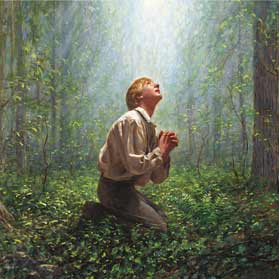
Sunday night, Elder Richard J. Maynes, of the Presidency of the Seventy, delivered a CES Devotional on the First Vision. In particular, he made explicit reference to the four first-person accounts of the First Vision authored by Joseph Smith that we have. [See the text of the four accounts at this handy page at the JSPP site.] He also referenced the Gospel Topics essay “First Vision Accounts.” It is encouraging to see senior LDS leaders incorporate the essays and the scholarship coming out of the Church History Department into their talks and recommend this material to the general membership. This… Read More
